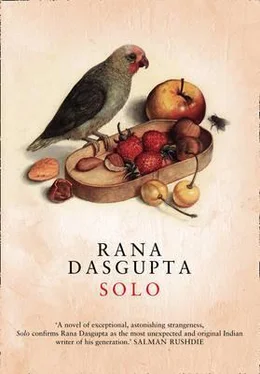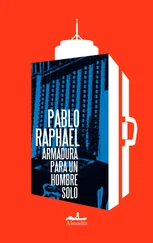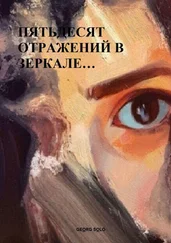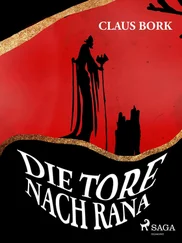In the evening, he put on a new shirt and set out with his father for the party.
The men came gathered round as they arrived.
‘Never seen a pig killed like that, Old Petar! Your son did it bareback! Did well to keep his focus, he did.’
Old Petar gave a half-smile. The men pressed rakia into their hands.
‘You’ll need a drink after that, boy.’
The pig had been roasting for hours on the spit, and the aroma displaced everything else. Women were still peeling vegetables and chopping onions and herbs. It was a beautiful autumn night, and the men gathered in lazy groups, smoking and drinking.
The mayor came over with more rakia.
‘Your son told you how he ruined my pig? Big mess. Big fucking mess. I saved that boar a long time.’
Old Petar did not look up. There was music coming from inside the hall, too loud for him to think straight, and he said,
‘My brother has rented a Japanese stereo from the Gypsies, with speakers as tall as me. He thinks it will make the young people like him. Meanwhile we can’t even hear what we’re saying.’
The stars grew bright, and the mayor announced dinner. They went inside to take their places. A life-sized photograph of the mayor and his wife on their wedding day had been pasted on one wall. The stereo was blaring pop music, and the worldlier girls were singing along. The tables were piled with food, and people began to eat hungrily. The mayor sat at the head table with his family, glaring all the time at his brother. He shouted through the music,
‘Can you taste it, Petko? Can you taste the upset your son made? The meat is ruined.’
Old Petar laid an arm across his son’s shoulders and said,
‘It tastes fine to me. At least he had the courage to try. You should have taken the pig on yourself. Then we could have laughed good and proper.’
The girls got up to dance in the middle of the tables. It was raucous music that Petar did not know. Several babies started crying at the same time. The mayor continued to complain about the pig.
Somebody came and hovered over Petar.
Petar had always loved Irina, but only from afar. In his private thoughts, she was an insouciant flock of laughter, a tumbling-sycamore girl, a bliss of damask roses. He had watched her grow up without her ever sending a glance in his direction. He sometimes went to the bakery where she worked, and she dealt with him swiftly and silently. He had seen her at weddings, singing songs until the old men cried, and she was perfect and fearless, and destined for extraordinary things.
‘Why don’t you ever dance?’ said she.
‘I’m not very good. I prefer to watch.’
‘Why don’t you try?’
She held out her hand and he took it. Standing next to her, he was half a head shorter. She led him into the middle of the room and succumbed to an energetic dance which was a perfect translation of the wild sounds into flesh. He tried to follow, awkwardly. She smiled at him.
‘That was the worst slaughter I ever saw!’
She laughed loudly.
‘It was a big pig,’ he said, not sure what she meant.
The dance was not working. She said,
‘Let’s go.’
They went outside and walked idly.
‘Don’t you like music?’
‘I don’t know much about it.’
‘You’re missing out. Music is the reason to be young!’
And then she said,
‘The Gypsies bring in music from England and Germany. I can teach you everything. In England there’s a style called punk, and there’s another kind called heavy metal. Motörhead, Iron Maiden — have you heard of them? I have headphones at home: you put those pads on your ears and hear the guitars groaning behind your eyelids, your brain melts and it’s crazy and fantastic.’
Petar looked at the ground while they walked, thinking, She is amazing .
‘Let’s face it,’ she said, ‘the world is shit, and full of lies. You need music. Then you understand that none of this matters — this punishment, this stupid Bulgaria.’
The factory had stayed closed that day, and the air was clear. She said,
‘I’m going to join a band some day. Get out of this town.’
‘You’ll be a great singer,’ said Petar assuredly.
‘What do you know? What have you heard, except for the stuff they play on Radio Sofia? The songs I write would scare you.’
Petar smiled. He said,
‘I know you well enough. I know we’ll switch on the television one day and see you on the big shows from Moscow. And we’ll still be here, living like we do. We’ll say, Once we knew her: she grew up here! ’
He was wistful. He said,
‘It will make me happy. To know you did what you dreamed of.’
She thought about it.
‘They’ll never play my music on those stuffy shows.’
They had arrived at her house.
‘Come in. Everyone’s at the party. We can drink on our own.’
They went into the house. He sat down at the kitchen table. She took some vodka down from a shelf and poured it into two glasses.
Nine months later, Irina gave birth to a baby boy. She and her new husband, Petar, named him Boris.
They had moved into a small apartment in an old tower block, but Petar was making plans for them to move to Sofia so that Irina could pursue her musical dreams.
The new baby was tiny and frail. Boris breathed with difficulty and seemed to be in continual discomfort. The doctor warned he might not live. He advised that the baby sleep with an oxygen mask, since his lungs were not yet fully developed.
The anxious parents laid their baby between them each night and stayed awake for hours, watching every breath going into his lungs and every exhalation misting the mask. Finally, exhausted by the anxiety, they fell asleep. Long after they had drifted away, the cylinder of oxygen stood like a sentinel by the bed, its rubber tube looping over one parent and blowing gently into baby Boris’s mouth and nose.
And so it was, on a cold night in November, when a spiteful gust of wind caused the flame to go out on the young family’s gas heater, when gas started to fill the bedroom (whose windows had been closed against draughts), when all the oxygen was expelled from the air and a deathly heaviness began to descend — that only little Boris, out of all his family, survived.
2
AFTER THE DEATHS OF PETAR AND IRINA, Old Petar collapsed into incapacity and fell away from the life of the town. Orphan Boris was taken in by Irina’s mother, Stoyana, who was the accountant in the local post office.
Stoyana considered her grandson’s preservation to be nothing short of a miracle. She loved him to distraction, and his infant antics were her cardinal joy.
When Boris was two years old she heard him singing a tune to himself. She recognised the melody, but could not recall where she had heard it. Boris continued to sing the same tune every evening, until Stoyana remembered it was a lullaby that Irina had written for her unborn son, and sung to him in the womb.
The town had seen better times. Money did not do what it once had done, and people began to suffer. The old housing blocks were damp and crumbling, and light bulbs had become so scarce they were pilfered from every corridor and elevator. Half the factory buses had stopped working. Broken windows and balconies were mended with corrugated iron, and there was nothing in the shops. Outside the factory, the mountain of slurry had collapsed into the river, and people blamed it for their cancers. Every morning there was a repulsive scattering of syringes around the bus shelter.
The Gypsies made money, which only increased the plight. No one had ever liked Gypsies, but things were easy while they were poor, and their children safely stowed in a school for the mad. Now they were lording it around with second-hand ZIL sedans, and illegal satellite dishes, and sparkling frontages on their shabby houses — and it seemed as though their years of exile were bringing rewards. The socialist economy, which gave jobs to all the Bulgarians, had seized up, and now the only money was in contraband.
Читать дальше
Конец ознакомительного отрывка
Купить книгу












